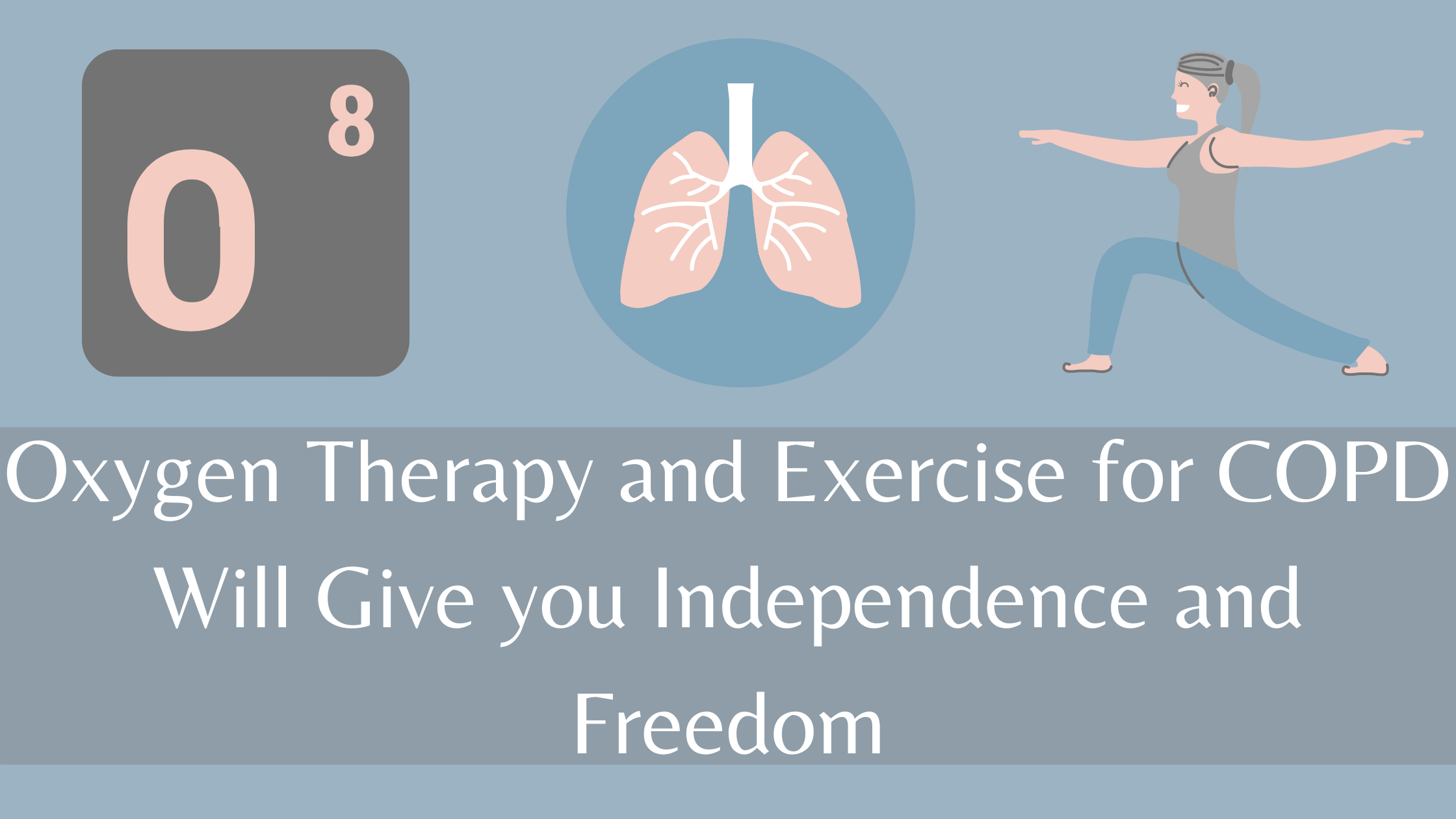
COPD is an invasive disease and living with this chronic illness will change your life in more ways than one. In this article we will talk about how you can take back your freedom and independence by exercising regularly and having the right oxygen equipment.
Freedom and independence
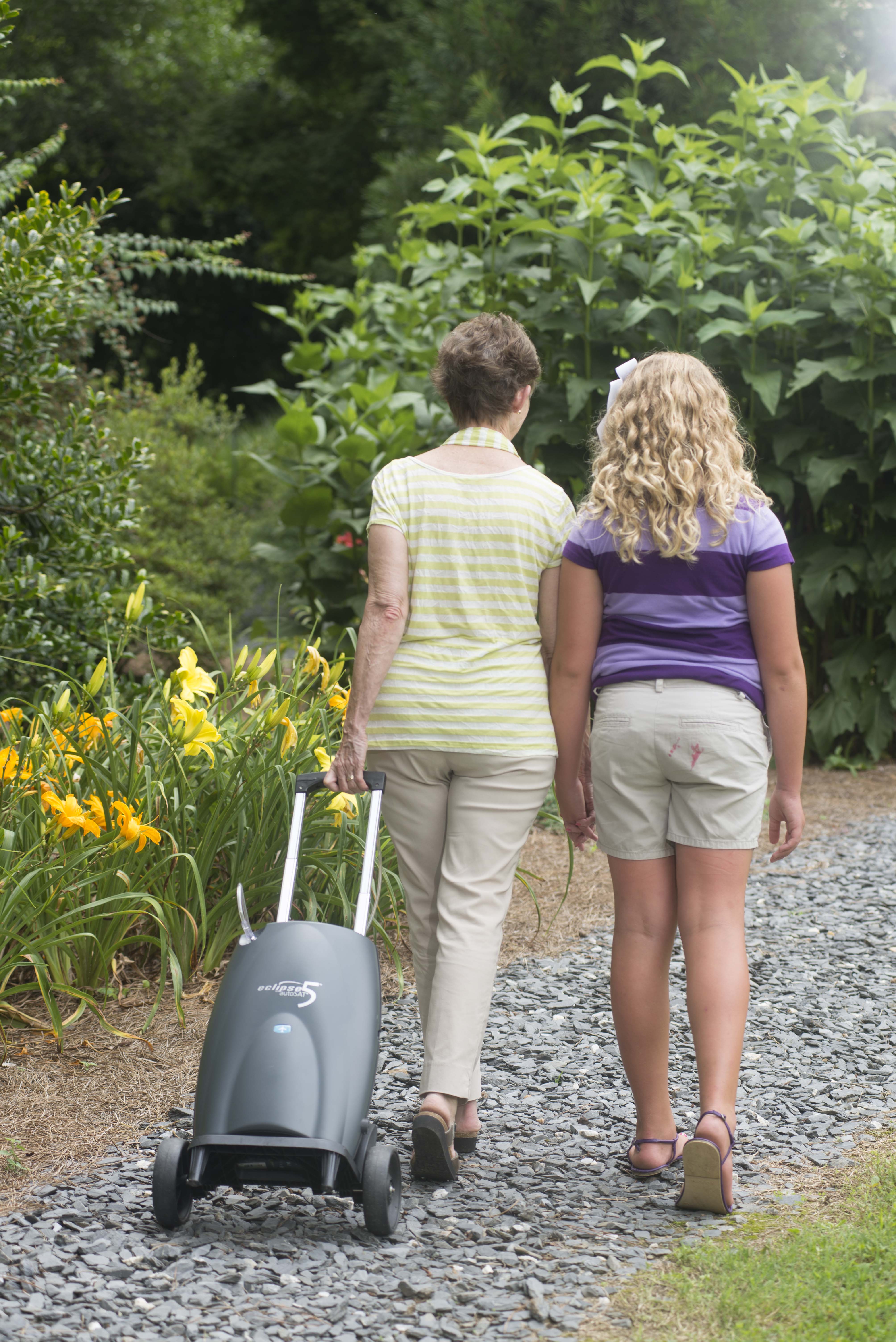
One of the most common sources of stress between the COPD patient and their caregiver is adjusting to a different level of independence and freedom than they were both used to before the patient started experiencing symptoms, which was likely before they were ever diagnosed.
Both persons are responsible for adjusting to a lifestyle where the COPD patient depends on their caregiver more than they had in the past, which is not always easy, especially if you are an independent person.
COPD is an obstructive disease that inhibits your ability to breath making everyday activities like showering seem nearly impossible. This is obviously hard for a person who is used to doing things on their own and now has to ask for help. The caregiver may also struggle with this because they are not used to being needed for so many tasks, and might feel used up by the end of each day.
Rather than focusing on how much your life has changed since being diagnosed with COPD, try focusing on a plan to find independence in parts of your life you hadn’t noticed you had before this can be as simple as adjusting to a new from of oxygen therapy and exercising more often.
Oxygen therapy
{{cta('fa8abc2a-1e88-4fa3-82fd-1cb5b9ed43b2','justifycenter')}}
There are a lot of ways people with COPD can find more independence in their lives starting with their oxygen therapy.
If the COPD patient uses oxygen tanks or a home oxygen concentrators, the issue of portability comes in the picture. This lack of maneuverability can be very frustrating and leave oxygen patients at the will of their caregivers as far as transportation and accomplishing chores and tasks around the house.
This is obviously frustrating for you because you are probably not used to asking for help.
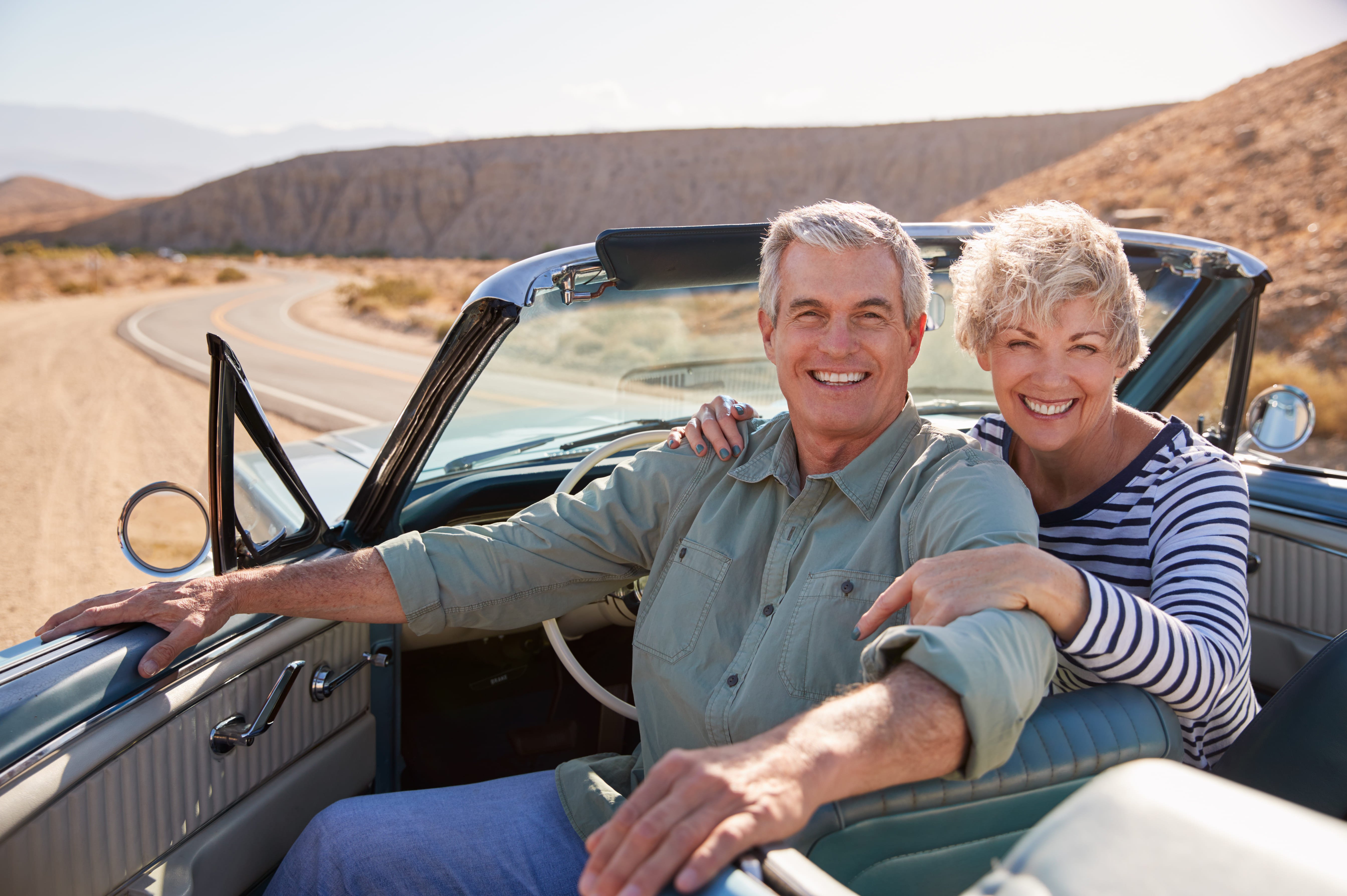
Being able to be active and portable is a very beneficial thing for both you and your caregiver, and the most effective option is to switch from using heavy bulky tanks, and buy a portable oxygen concentrator.
Portable oxygen concentrators range in weight from 4 pounds to 18 depending on your flow rate and oxygen prescription. All portable oxygen concentrators run off of batteries, batteries that can last anywhere from 2-16 hours depending on your flow rate and the brand, unit, and model. All portable oxygen concentrators are FAA approved, meaning you can take them on the airplane, cruise ship, or car with you when you travel.
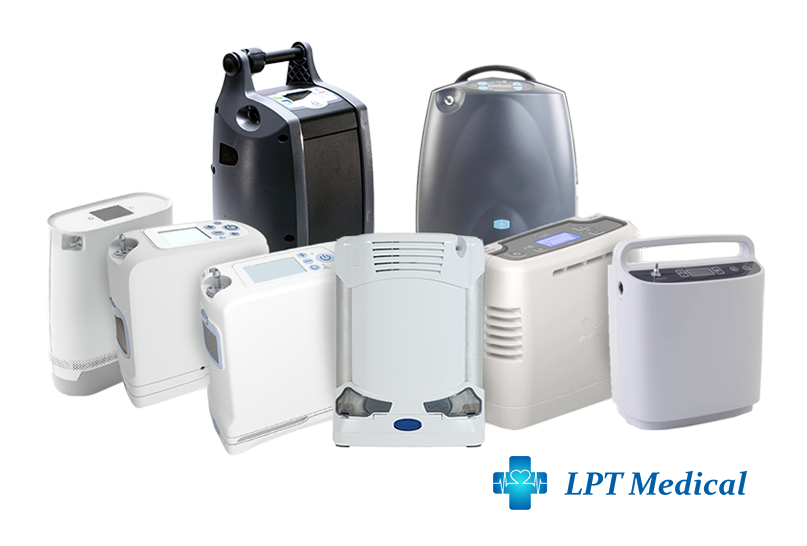
One of the most beneficial aspects of portable oxygen concentrators is how portable they really are compared to traditional home oxygen therapy, where people had to carry around heavy tanks or little oxygen canisters that would barely last a day before they had to get it refilled.
Portable oxygen concentrators never have to be refilled. This modern form of oxygen therapy extracts the surrounding air, compresses and purifies it into medical grade oxygen for the oxygen user.
Most people prefer this more modern technology for their oxygen device because portable oxygen concentrators gives people the ability to travel alone, carry their oxygen device on their own, and helps them get into a strict exercise regime because the device is so easy to bring along with them for a walk, to the gym, or to their pulmonary rehabilitation class.
Being able to accomplish your own tasks, do lawn work or other chores around the horse, run your own errands, gives you a valuable source of independence and also allows your caregiver a break from doing all the things they once did before you had a portable oxygen concentrator.
{{cta('43b79c5e-6bd6-4f02-ac27-2d038d20c146','justifycenter')}}
Exercise
Exercise is your ticket to freedom and independence, and the sooner you start on an exercise regime for COPD, the better you will feel. Exercising is the one way you are going to strengthen your lungs.
Even olympic athletes will train at higher altitudes where there is less oxygen saturation in the air, so their blood oxygen levels are lower. When they go down to lower altitudes to compete, there is a lot of oxygen in the air so their body will perform very well in these conditions.
It is the same for a person with COPD. Even though environmental factors, genetics, or smoking has caused your COPD, and the damage to your lungs is irreversible, exercise will help your body adjust to your lung’s capacity, and even slow down the deterioration happening in your lungs.
Remember if you are ever exercising and become short of breath, you can take a break and let your breathing come back to normal.
Also talk with your doctor about your exercise regime, so you know if you need to increase your oxygen intake while you exercise compared to your normal prescription.
Here are the best exercise you can do everyday in order to strengthen your lungs and muscles:
Walk
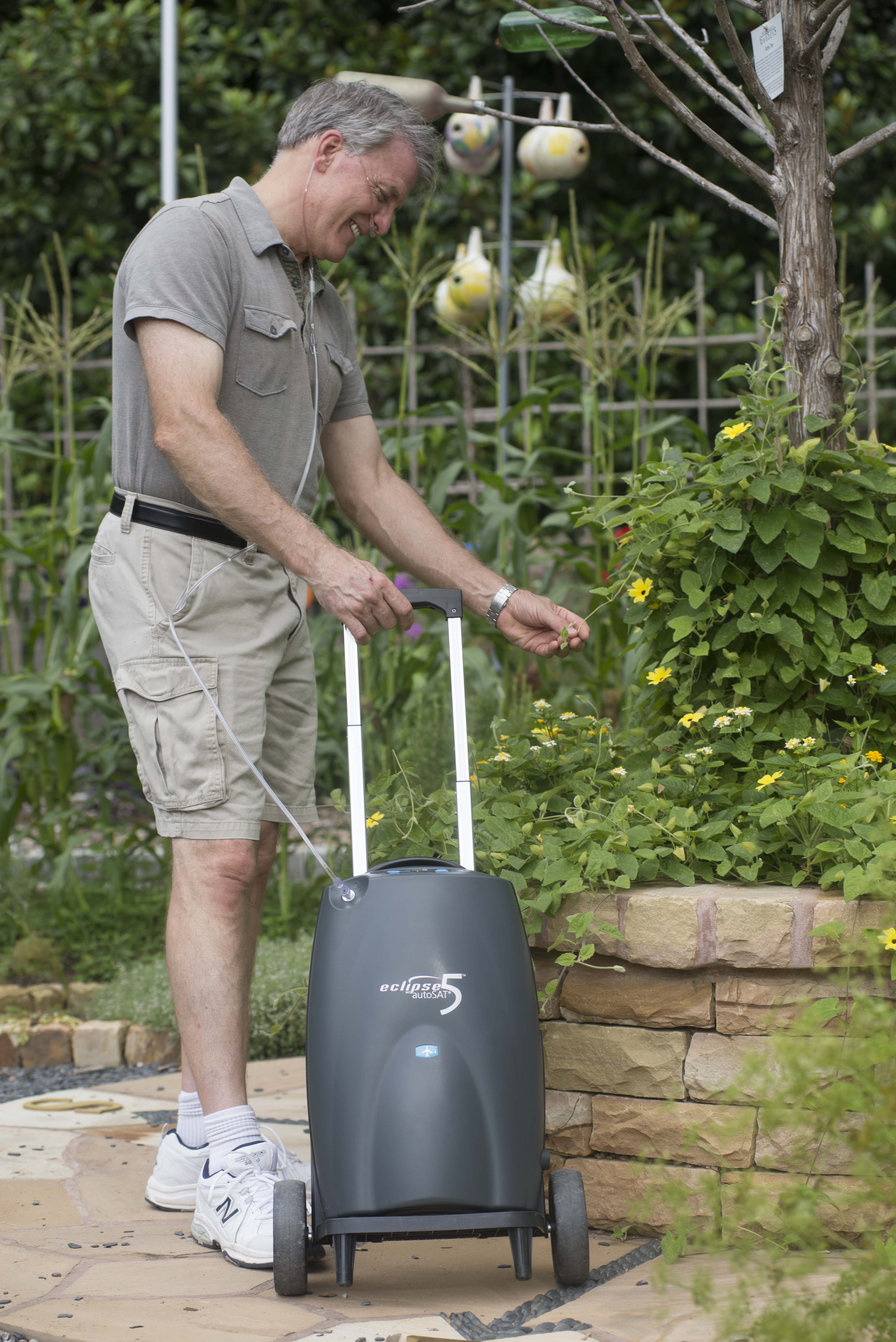
Walking is one of the easiest and the best exercises you can do if you have COPD. There is no excuse for anyone with COPD not to walk, because even if you have very severe COPD, you can walk to and from your living room everyday as your form of exercise. Each day you could increase the speed of your walk or the distance. You can walk anywhere- outside, in a grocery store, on a treadmill. Even a slow pace and short distance will be beneficial for you.
Bike
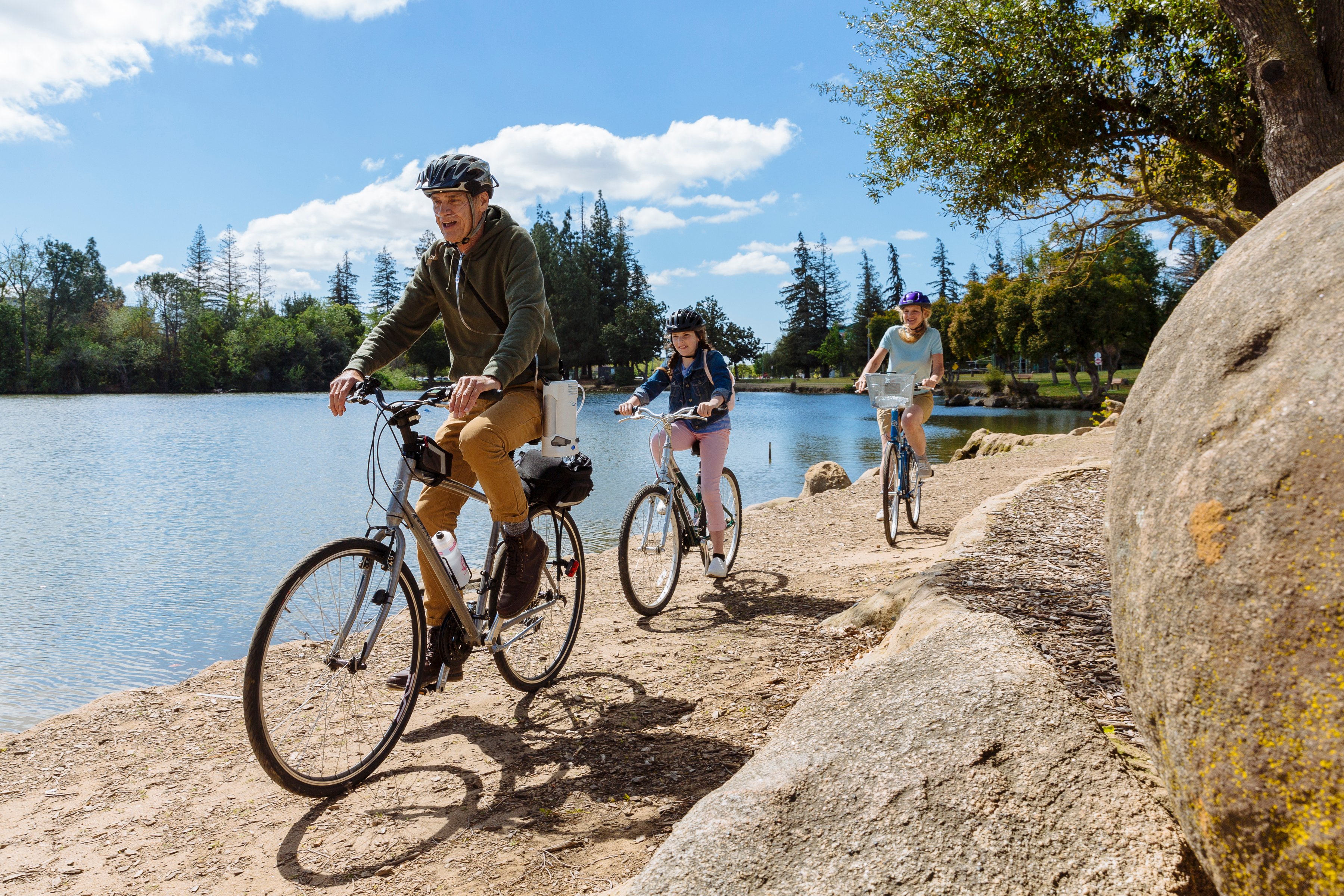
Biking is a great low impact exercise that will work out your leg muscles, it's good for your cardiovascular system, and will help your lungs increase breathing capacity over time. You can get a stationary bike for your home so you can stay connected to your oxygen device inside. You could also choose to bring your oxygen device with you if you have a portable oxygen concentrator! The Caire Freestyle Comfort or the Inogen One G3 and G5 are great options for carrying with you outside while you bike, so you also get sun shine and fresh air. These POCs offer long battery life, which allows you to go further distances, and they are lightweight, so they won’t significantly increase the weight you are already riding with.
Weights - arm curls
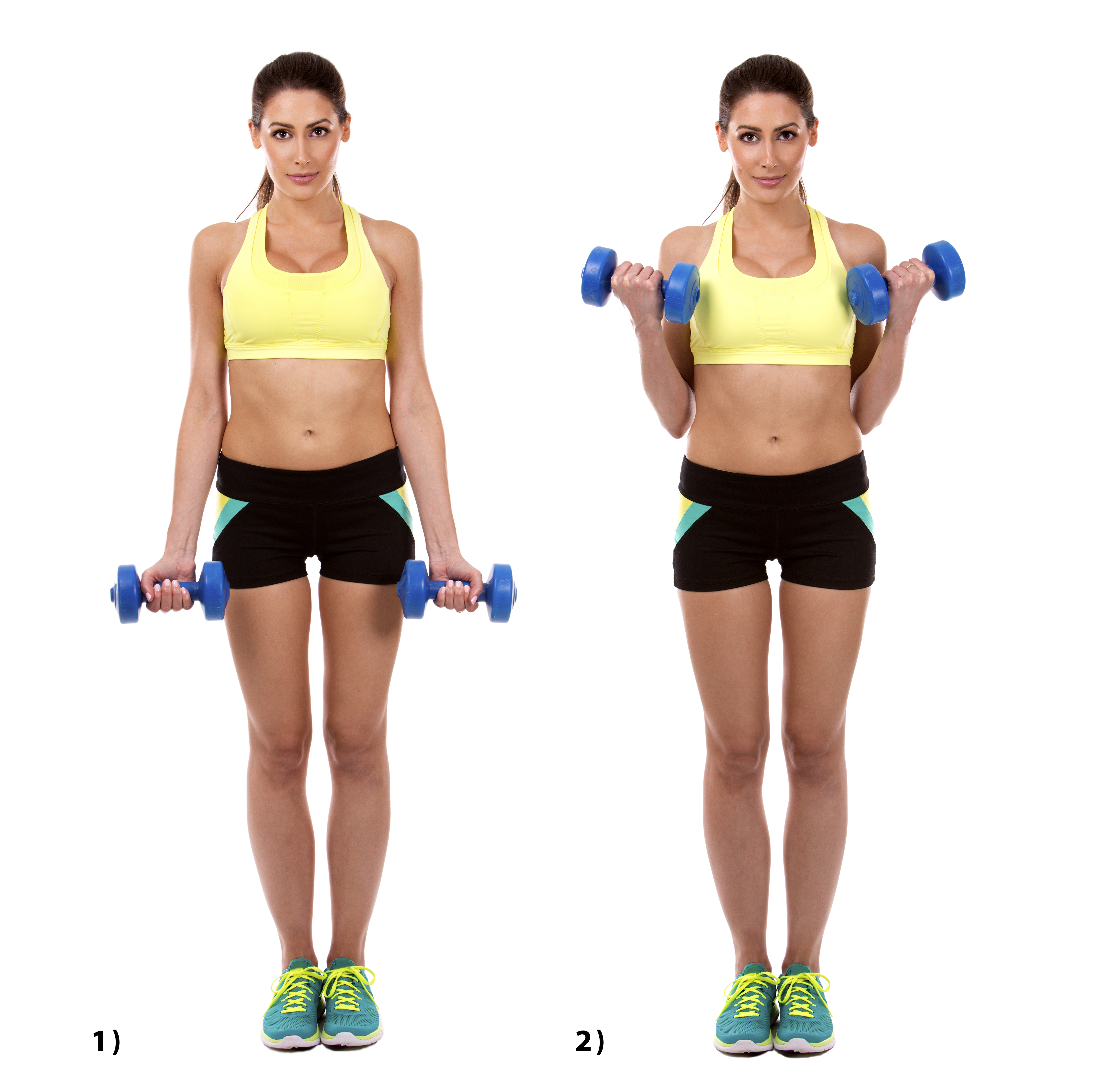
Working out by lifting light weights can help you gain independence because you will be able to reach a high shelf on your own or carry heavier grocery bags. You can use hand weights, stretchy bands, or water bottles to try arm curls.
Here's how to do a basic arm curl:
- Hold the weights at your sides with your palms facing forward
- Breathe in
- Now lift toward your chest
- Keep your elbows down
- Exhaling slowly
- Slowly lower your arms back down as you breathe in
- Build up to two sets of 10-15 repetitions
Forward Arm Raises
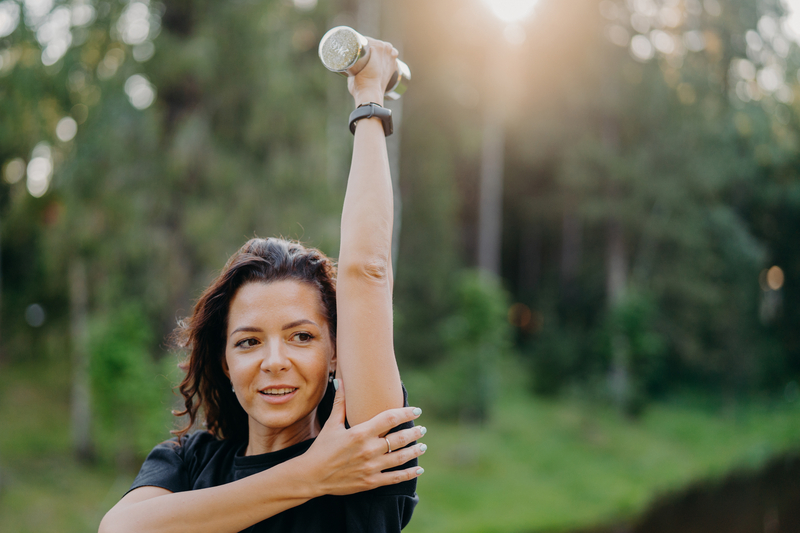
Whenever you are doing weight lifting exercises, you should start with light weights and increase the weight every two to three weeks to challenge your muscles. Arm raises strengthen your upper arms and shoulders so you are able to mow the lawn or do other upper body intensive chores on your own.
Here is how to do arm raises:
- Hold weights down at your sides, palms facing in.
- Inhale
- Exhale slowly as you raise both arms straight out front to shoulder height.
- Inhale as you slowly lower your arms
- Build up to two sets of 10-15 repetitions.
Calf Raises
Adding a leg exercise to your routine will allow you to walk easier and further. Your legs carry your weight everyday, by working out those muscles you will not feel as drained after doing simple activities throughout the day because your legs will be stronger.
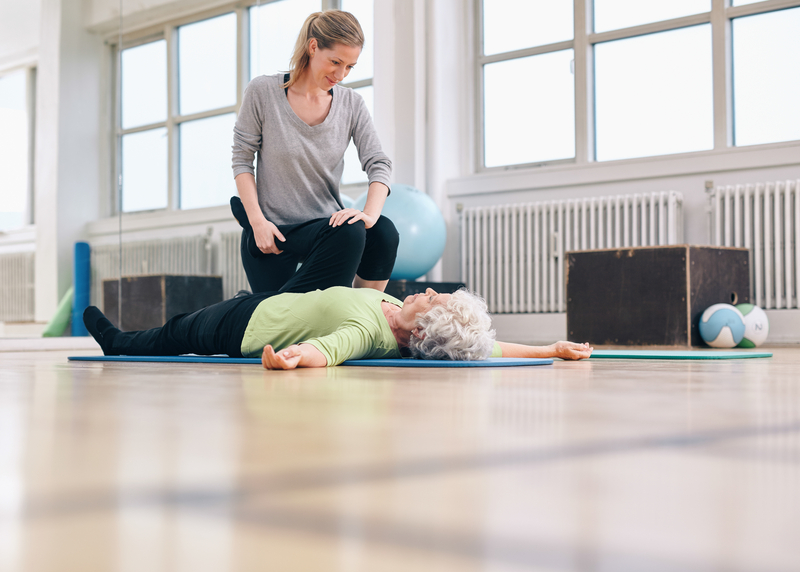
To to a calf raise:
- Stand 6-12 inches behind a sturdy chair with your feet hip-width apart.
- Hold on for balance
- Inhale
- Lift up high on your toes
- Exhaling slowly
- Hold the raised position briefly
- Lower your heels back to the ground, inhaling slowly.
- As you get stronger, do one leg at a time. Work up to two sets of 10-15 reps.
Leg Extensions
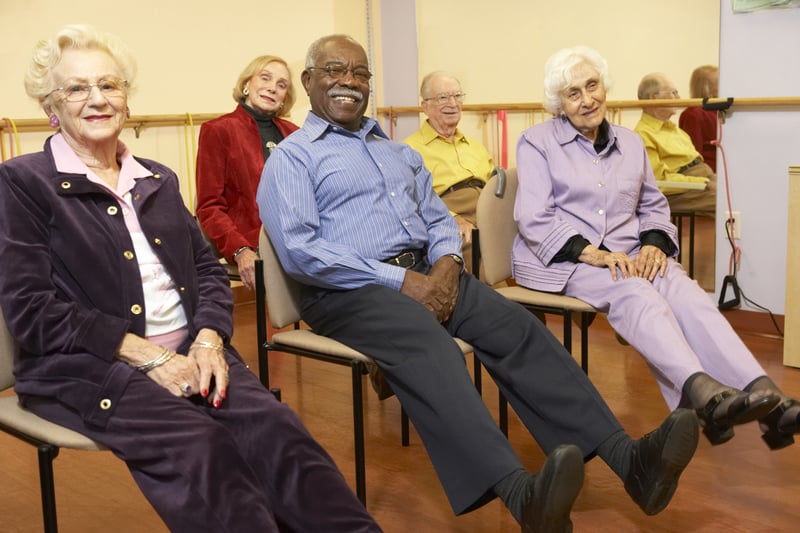
Leg extensions are very low impact. Doing these will build the muscles in your legs, but you can sit down while you do them! This means there will not be weight on your joints, and if you already have a hard time standing up, this is a great exercise to do everyday until you can stand more easily, and eventually start trying other exercises like walking.
- Sit in a chair that supports your back
- Inhale
- Exhale slowly as you stretch one leg as straight as you can, without locking your knee.
- Breathe in as you slowly lower your foot back to the floor
- Do one set with your right leg, then one set with your left
- If this is too easy, Add ankle weights or try both legs at one time for a core workout
- Work up to two sets of 10-15 reps.
Exercise your diaphragm
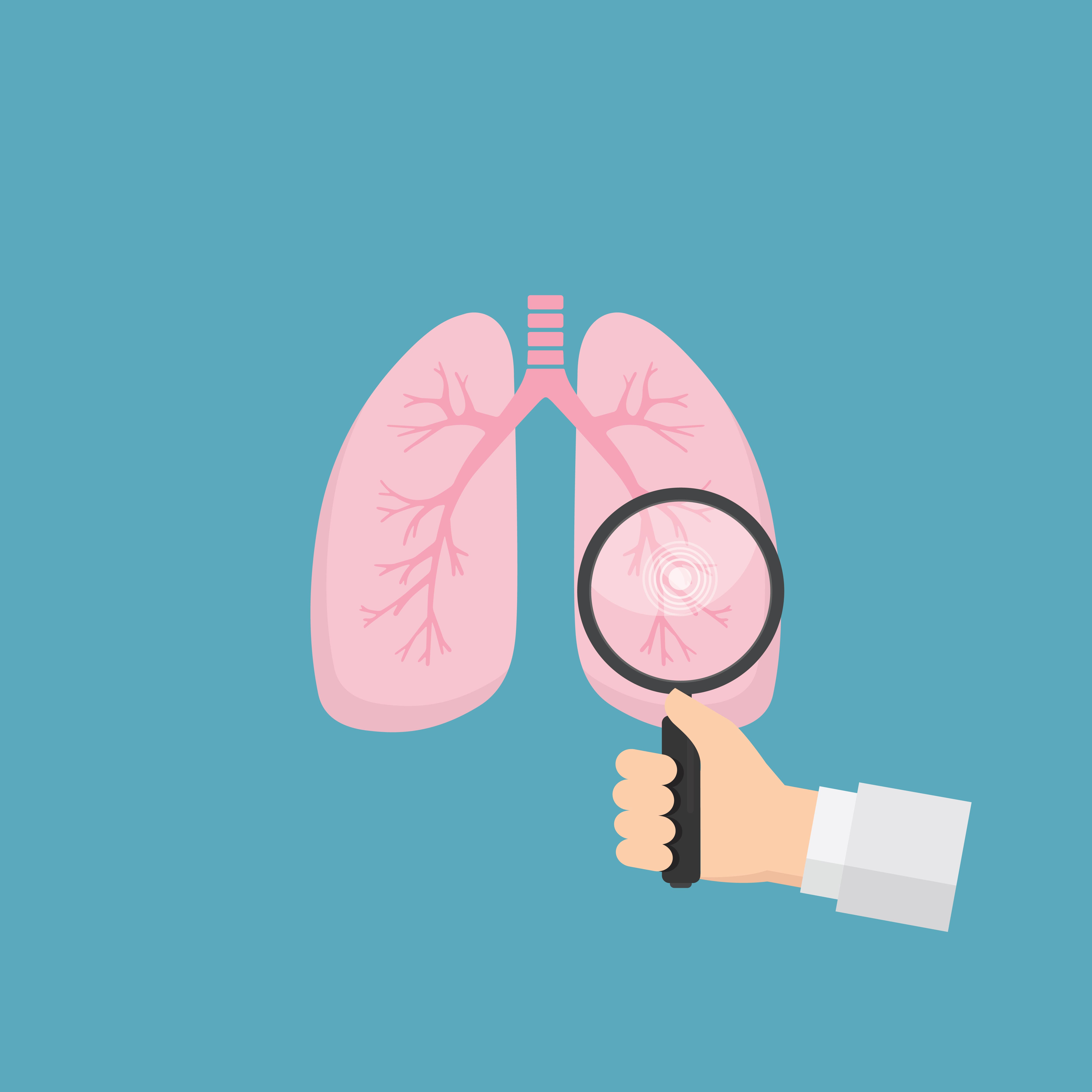
Your diaphragm is a key breathing muscle underneath your rib cage and lungs. Strengthening your diaphragm is great for people with COPD because this muscle helps your lungs inhale and exhale, and your lungs are not pressured to work so hard on their own.
- Lie down with your knees bent or sit in an easy chair -- one hand on your chest, one below your rib cage
- Slowly inhale through your nose so that your stomach raises one hand
- Exhale with pursed lips and tighten your stomach
- The hand on your chest should not move
- Do this for 5 to 10 minutes, three or four times a day
- Breathing this way will become easy and automatic
Tai Chi and yoga
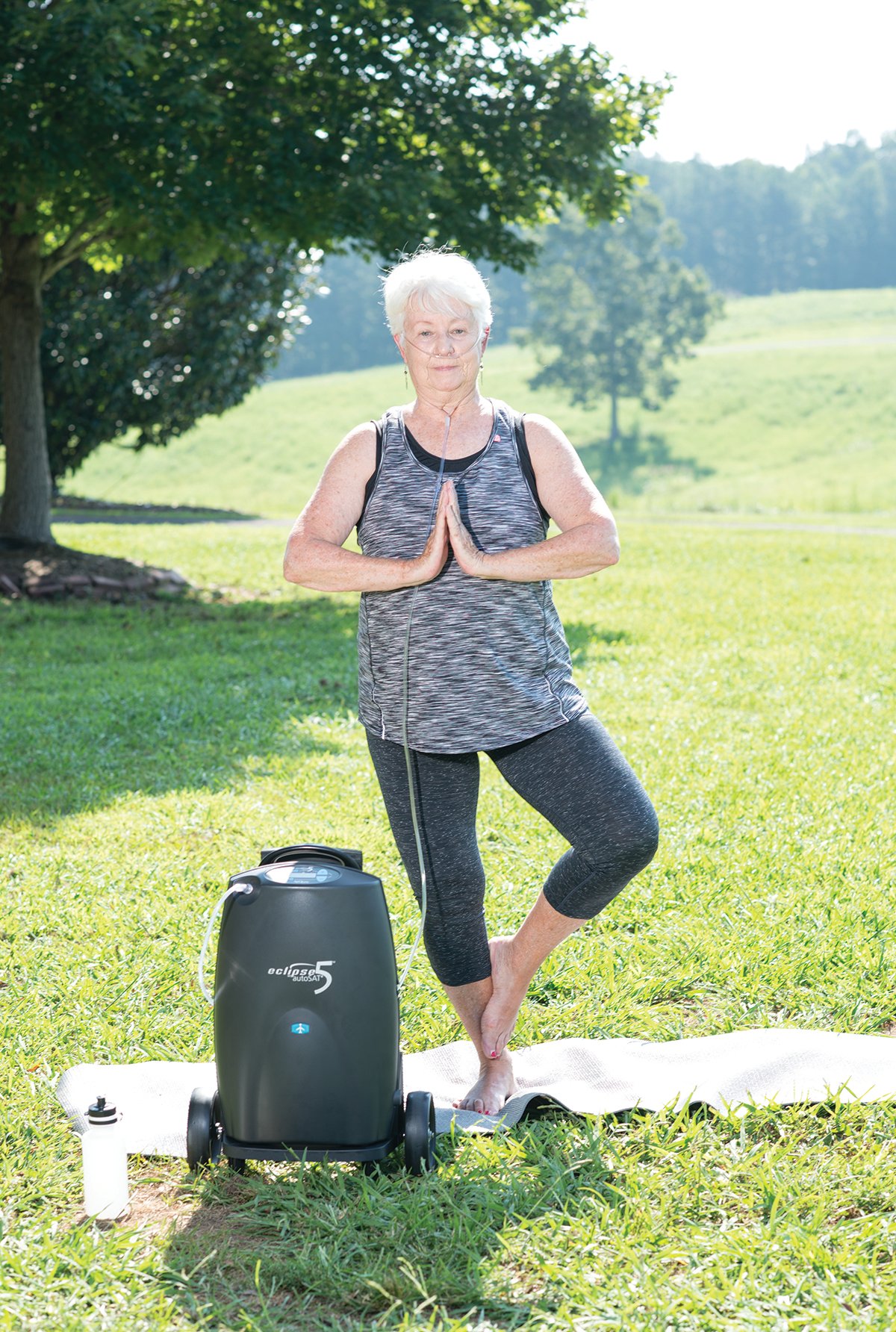
Tai Chi is an ancient Chinese practice of gentle, flowing movements so this is a great workout for people with COPD both for physical wellness, but also mental calmness and stress relief. It's a mild workout for your heart and lungs and helps tone your muscles. It is so important to find an activity that helps you relax. These calm moments will help you practice mindful breathing and make it easier to breathe in your everyday life. You can find a class that you can attend, or watch videos online to learn the moves.
Exercise and oxygen overview
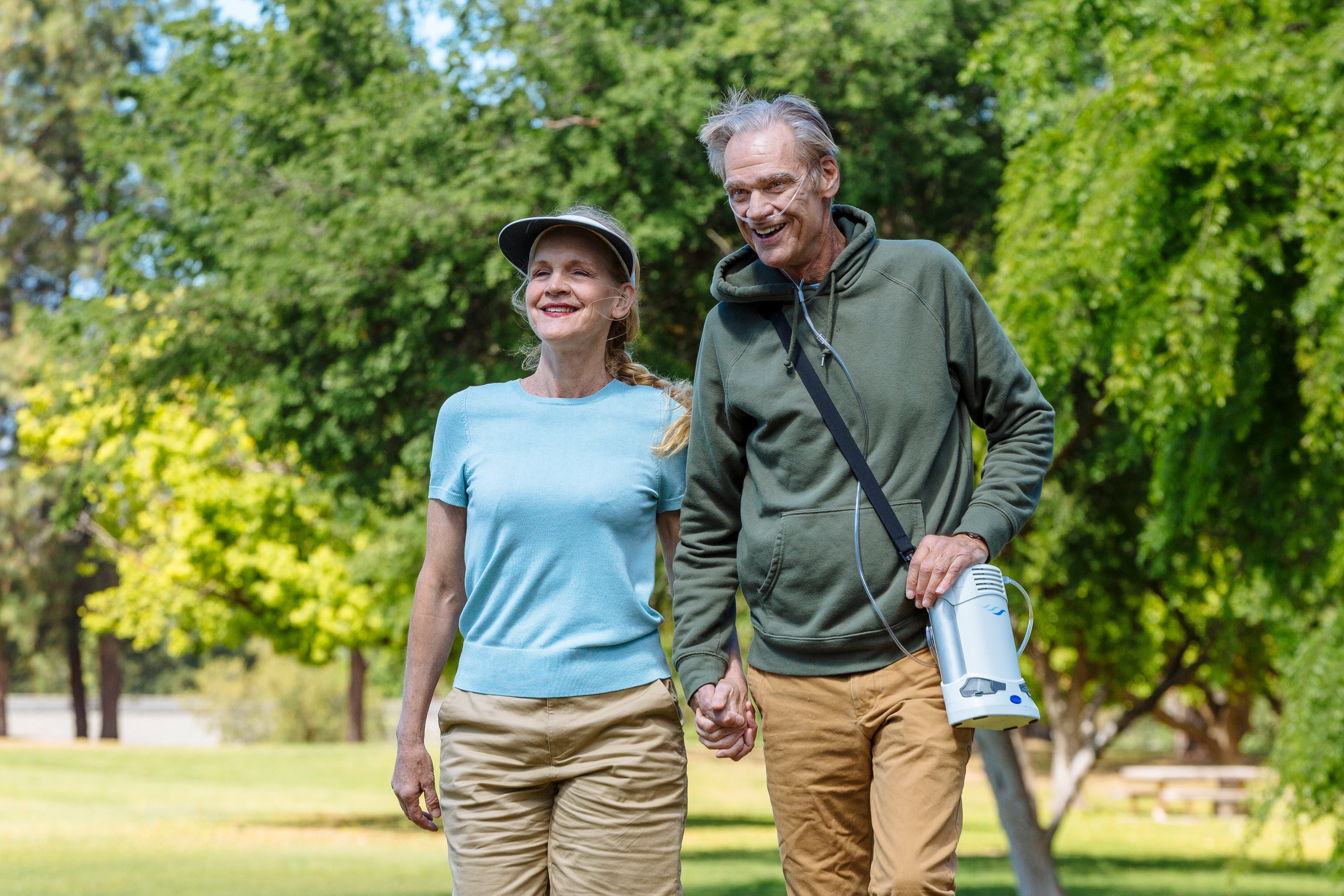
Having COPD can strip you of your freedom an independence, but only if you let it. The more time you let go without freedom and independence the harder it will be to grasp when you so desperately want it.
This does not mean that living a normal independent lifestyle is going to be easy if you have COPD.
With the help of a portable oxygen concentrator you are able to accomplish your own chores and travel on your own confidently and with ease. With a lightweight breathing device that is powered off of battery and will never run out of oxygen you can go out alone and spend time enjoying your day without having to ask for help or feel uncomfortable leaving your home alone.
If you doctor gives you the "OK" to start exercising, you can begin your customized workout routine everyday, which will help you build muscles and endurance. COPD researchers and health expert strongly encourage exercise for people with COPD in order to slow down this progressive disease from getting worse.
Exercise is so good for strengthening your bones and muscles, but it also increasing your lung's capacity and actually makes you lungs stronger and more capable of inhaling and exhaling.

